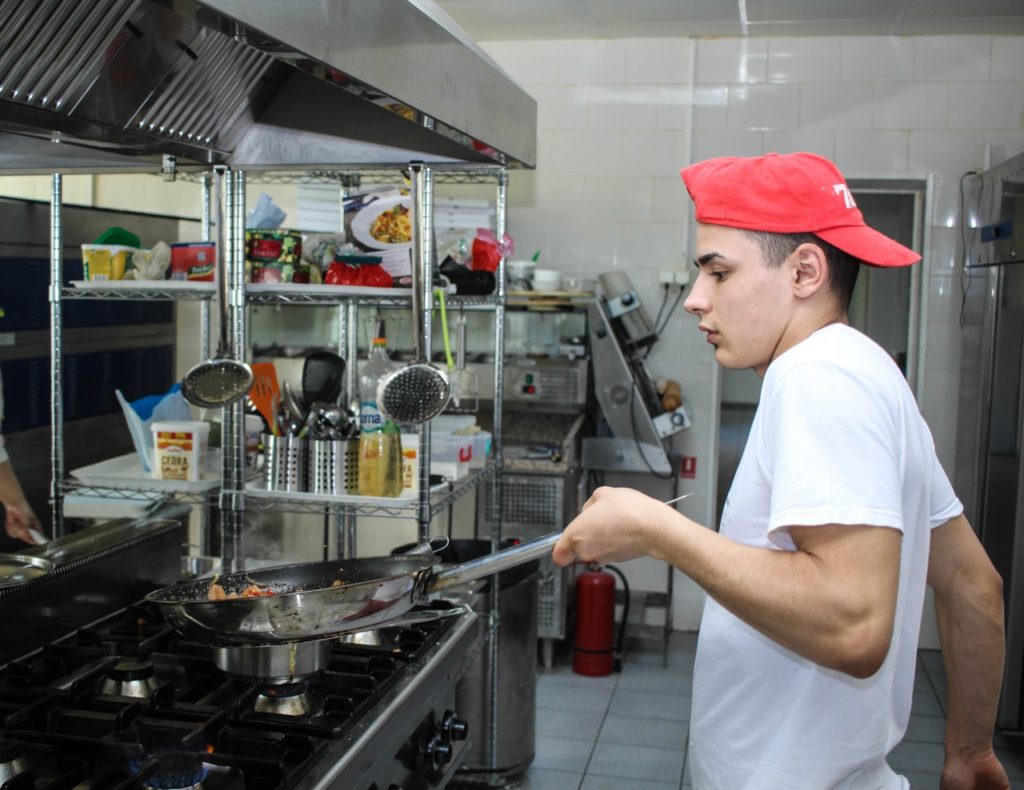
From Prison to Plating: High HOPES
April 12, 2024In the past, Roulez Magazine featured a story about English prison inmates learning Culinary Arts during imprisonment. Those prisoners even operate their own restaurants at multiple Her Majesty’s Prisons (HMPs). Since writing this piece, the prison-to-plating concept has never left our minds. American prisons are heavy with despair and hopelessness. This makes one wonder why we cannot — or, more appropriately, have yet to — mimic this type of program.
Seeing Beyond the Stigmas
Sometimes I reflect with a few laughs on my own brief experience as a civilian “supervisor” of an inmate work crew. The crew hailed from a federal minimum security facility in Goldsboro, North Carolina. Seymour Johnson (Air Force Base) Federal Prison Camp houses offenders who commit non-violent acts, such as various forms of fraud. My low-key role was simply to keep an eye on them as they worked around the enlisted airmen’s club where I was a club promoter as a young 20-something.
Of course, I knew these gentlemen were skilled at “working” people for what they wanted. Every question or statement they made dripped with transparent compliments. Aside from the amplified charm made almost necessary by their current lifestyle, they were pleasantly social, amenable people. They worked well in the facility and on the grounds, always with smiles and songs sung under their breath.
We had our share of off-color incidents. You can imagine why, knowing current prison inmates were unleashed in service kitchens and a facility with four active bars, telephone bays, live band setups and too many hidden corners to count. But I can honestly say that if any of them came to me today and I was in a position to provide employment, I would likely do so. They carry such a stigma that many should not have to carry beyond their sentence.
After thinking about the English HMP program and my former crew of inmates again just several days ago, I was pleased to learn that the U.S. Department of Labor has just provided the National Restaurant Association Educational Foundation (NRAEF) with a $4.5 million grant. This grant, in part, helps former prison inmates launch new careers in the hospitality industry.

HOPES for Young Adults Leaving Our Prisons
Under the name Hospitality Opportunities for People (re)Entering Society (HOPES), grant money provides support and training for incarcerated young adults between the ages of 18 to 24.
Just imagine my excitement when I discovered the pilot programs take place in Boston, Chicago, Richmond and our magazine’s own home region of Hampton Roads, Virginia.
Rob Gifford, President of NRAEF, said, “We are honored to be part of a national effort to create positive employment opportunities for young adults involved with the justice system. The program fits perfectly with our mission to attract, empower and advance today’s and tomorrow’s restaurant workforce and is an excellent way for anyone seeking to get back on track to becoming a productive and responsible member of society.”
The program does not simply train these individuals taking their first steps back into the community. It goes farther, providing HOPES participants with placement in local restaurants or foodservice positions. They train while still behind bars, then begin work upon leaving their facility.
Of course, this is a collaborative effort that requires national, state, local and individual heroes working together. The program is indeed a multi-party partnership between correctional institutions, state restaurant associations and community organizations. As with anything else in their own futures, individual inmates play the biggest role.

Walk a Day in an Inmate’s Shoes
One of the most complex issues facing prisoners leaving incarceration is finding quality employment. They need jobs to meet the most basic requirements of their parole programs, not to mention simple daily needs. Without gainful employment, staying “free” on the outside becomes a struggle to which far too many fall. We set them up for that fall, as people who turn them away from jobs.
Imagine walking in an inmate’s shoes, first as they prepare to pass through prison gates for the “last” time. The anxiety over finding work, housing they can afford and other basic requirements must feel intense. Mixed with that is the excitement of freedom, certainly. But also mixed into this swirl of emotions are the desire and promises to stay on the straight-and-narrow.
Unfortunately, the real world often beats these young people down too much to enable them to lead the lives we all hope they will lead. Being free can become an impossibility for many who have no opportunities. That is particularly true when they come from socioeconomic backgrounds of struggle, or live where jobs are scarce.
But NRAEF reports that for young adults like those the program targets, recidivism drops from 52% to 16% with sustainable, gainful employment. Jobs literally determine their fate in many ways. Our provision of “a chance” determines their fate.
Ex-Prison Inmates Make Excellent Employees
Recent studies report that employees with criminal records enjoy higher job retention rates than those without criminal backgrounds. People with criminal records prove more motivated in their work because their job market is so limited. They value being given a chance to live the life we all want to live, a free one with gainful employment.
This new NRAEF HOPES program empowers inmates through readiness for release or parole. They start learning about their new hospitality-related craft within their correctional facility. This training prepares them using guidelines from industry experts and best practices.
Beyond their training and job placement, inmates participating in the program build self-confidence in their ability to survive on the mean streets of America. For many, that “mean” was the kill-or-be-killed pre-incarceration lifestyle. After prison, it becomes a more “civilized” destruction of one’s pride through the dog-eat-dog world of job search and employment. HOPES helps them bypass the most difficult aspects of employment, those of qualification and placement. Through this support, these inmates stand a real chance of becoming the people we all want them to be. Even more importantly, they can be the people they aspire to be while living the lives they want.
The HOPES program could start a chain of events and programs that can set us all free from many of our biggest societal struggles. Many of these struggles are cycles that simply need to be broken. Toward that end, a little hope goes a long way.
